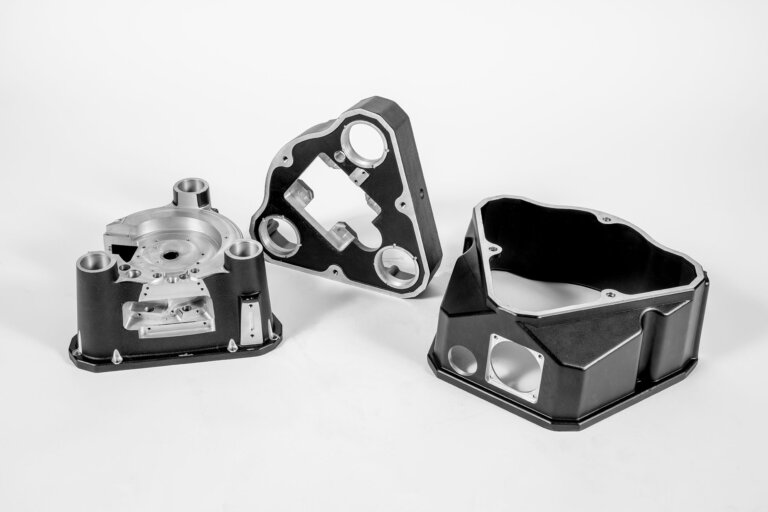The Greatest Guide To Alcast Company
The Greatest Guide To Alcast Company
Blog Article
The Best Guide To Alcast Company
Table of ContentsThe Ultimate Guide To Alcast CompanyA Biased View of Alcast CompanyNot known Facts About Alcast CompanyThe 10-Minute Rule for Alcast CompanyThe Facts About Alcast Company RevealedThe Main Principles Of Alcast Company
The subtle distinction hinges on the chemical web content. Chemical Comparison of Cast Aluminum Alloys Silicon advertises castability by lowering the alloy's melting temperature and boosting fluidness during casting. It plays an essential role in permitting elaborate molds to be filled up properly. Furthermore, silicon adds to the alloy's stamina and put on resistance, making it valuable in applications where resilience is important, such as vehicle components and engine parts.It additionally improves the machinability of the alloy, making it much easier to refine into finished items. In this way, iron contributes to the general workability of light weight aluminum alloys. Copper increases electric conductivity, making it beneficial in electrical applications. It additionally enhances rust resistance and contributes to the alloy's total strength.
Manganese contributes to the toughness of aluminum alloys and boosts workability. Magnesium is a lightweight component that offers toughness and effect resistance to light weight aluminum alloys.
How Alcast Company can Save You Time, Stress, and Money.
Zinc improves the castability of light weight aluminum alloys and assists regulate the solidification procedure throughout casting. It enhances the alloy's stamina and firmness.
The key thermal conductivity, tensile toughness, return toughness, and prolongation vary. Amongst the above alloys, A356 has the greatest thermal conductivity, and A380 and ADC12 have the least expensive.
The Facts About Alcast Company Uncovered

In precision spreading, 6063 is well-suited for applications where detailed geometries and top notch surface coatings are paramount. Instances consist of telecommunication rooms, where the alloy's premium formability enables streamlined and aesthetically pleasing styles while preserving architectural stability. In the Lighting Solutions market, precision-cast 6063 elements develop classy and efficient illumination fixtures that need detailed forms and good thermal efficiency.
It leads to a finer surface finish and better rust resistance in A360. The A360 shows premium prolongation, making it ideal for complex and thin-walled components. In precision casting applications, A360 is well-suited for industries such as Consumer Electronics, Telecommunication, and Power Devices. Its enhanced fluidness enables detailed, high-precision parts like smart device casings and communication gadget housings.
Alcast Company Can Be Fun For Anyone
Its unique properties make A360 a useful choice for precision spreading in these industries, boosting item toughness and quality. Light weight aluminum alloy 380, or A380, is a widely utilized spreading alloy with several unique characteristics. discover this It uses excellent castability, making it a suitable selection for precision spreading. A380 shows great fluidness when molten, ensuring elaborate and thorough molds are accurately duplicated.
In precision casting, light weight aluminum 413 beams in the Consumer Electronics and Power Devices sectors. This alloy's premium deterioration resistance makes it a superb selection for outside applications, guaranteeing durable, resilient products in the discussed sectors.
Rumored Buzz on Alcast Company
The aluminum alloy you select will considerably impact both the spreading procedure and the homes of the last item. Due to the fact that of this, you should make your decision very carefully and take an enlightened approach.
Figuring out the most ideal aluminum alloy for your application will indicate weighing a wide selection of features. The initial classification addresses alloy qualities that affect the production process.
Get This Report on Alcast Company
The alloy you select for die casting directly affects a number of aspects of the spreading procedure, like exactly how very easy the alloy is to collaborate with and if it is vulnerable to casting problems. Warm breaking, additionally referred to as solidification fracturing, is a common die spreading problem for aluminum alloys that can lead to internal or surface-level rips or cracks.
Particular aluminum alloys are more vulnerable to hot breaking than others, and your choice needs to consider this. It can damage both the actors and the die, so you should look for alloys with high anti-soldering homes.
Corrosion resistance, which is currently a notable characteristic of light weight aluminum, can differ substantially from alloy to alloy and is a vital characteristic to consider depending on the ecological conditions your product will certainly be revealed to (aluminum foundry). Wear resistance is another property commonly looked for in light weight aluminum products and can set apart some alloys
Report this page